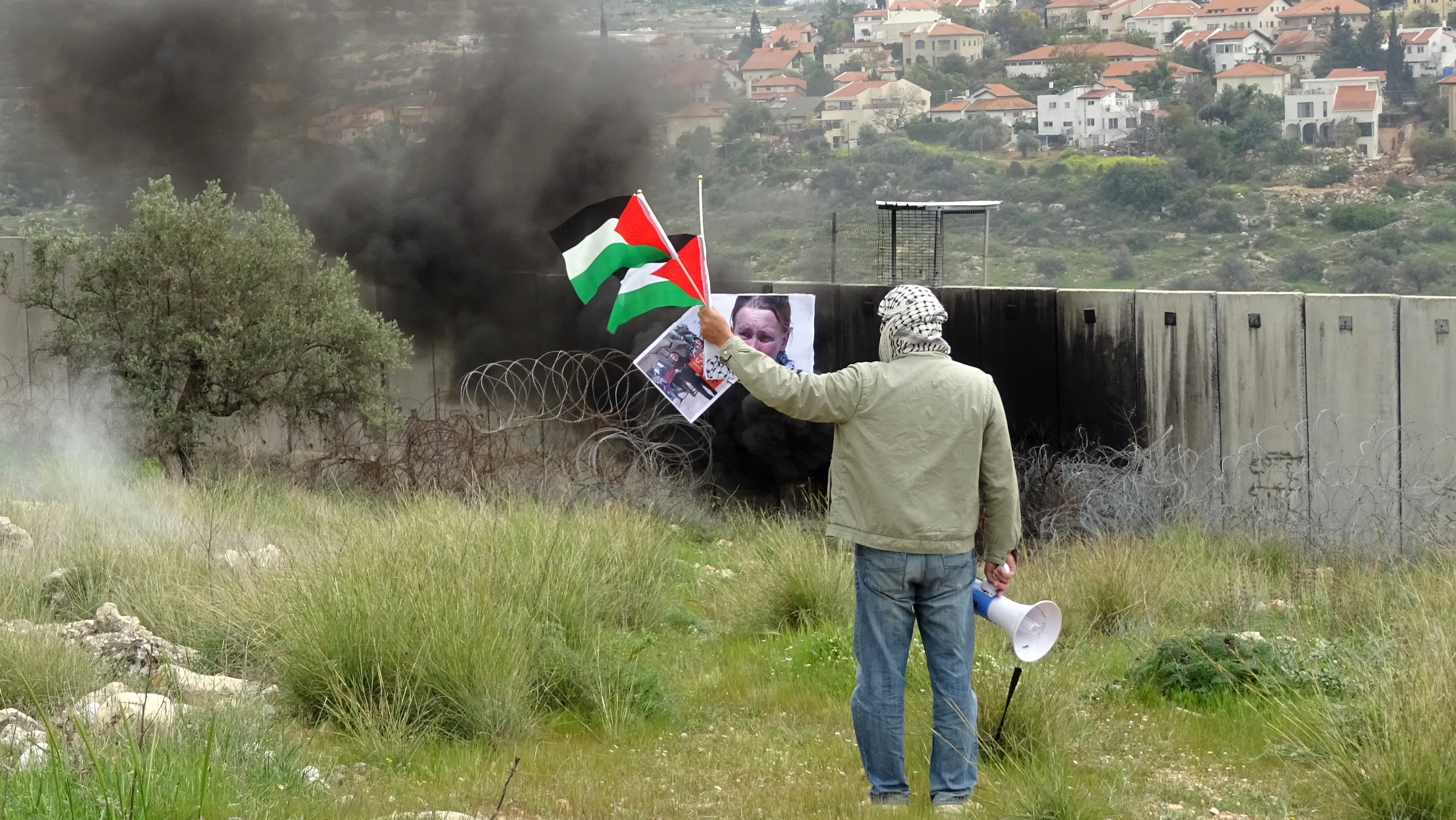Tag: International law
-
ISM Statement on Israel’s attempt at silencing Omar Barghouti
On March 19th Israeli authorities barged into the house of Omar Barghouti, co-founder of the Boycott, Divestment and Sanctions (BDS) movement; in an attempt to tarnish his image and reputation by claiming an alleged income outside of Israel. Omar and his wife Safa endured a first round of interrogation lasting 16 hours, Omar was subsequently…
-
Long-awaited maintenance works offer rare sight for Palestinians in al-Khalil
30th March 2017 | International Solidarity Movement, al-Khalil team | Hebron, occupied Palestine On Wednesday 29th March 2017 Israeli forces opened a blocked-off street for the first time in almost two decades to allow long-overdue sewage system works. The alley in occupied al-Khalil, open for less than a day, gave Palestinians the rare opportunity to see…
-
Ni’lin remembers Rachel Corrie and Tristan Anderson
17th March 2017 | International Solidarity Movement, Ramallah team | Ni’lin, occupied Palestine Today on 17/03/2017 the residents of Ni’lin alongside internationals and Israeli activists held a demonstration in memory of Rachel Corrie and Tristan Anderson, against the apartheid wall and against the occupation of Palestine. A parade of around fifty demonstrators, including Israeli and ISM…



